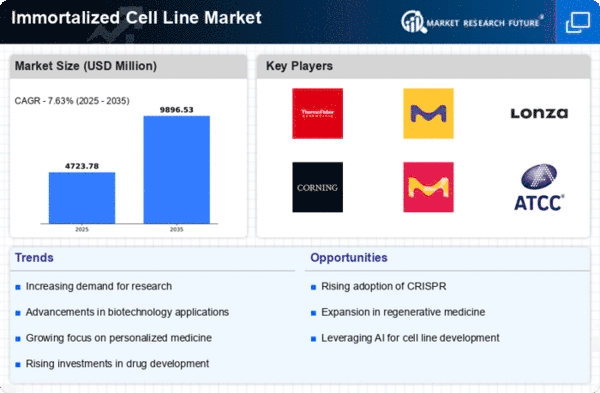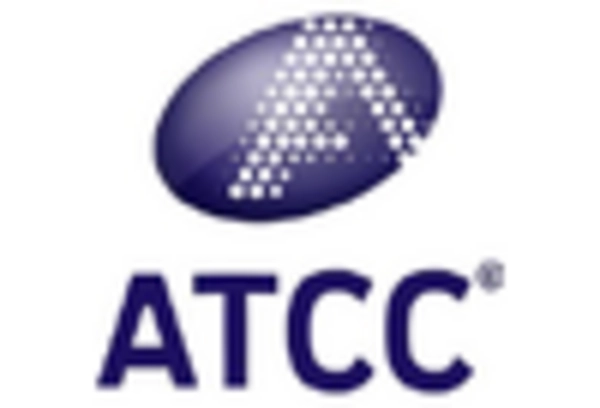Market Analysis
In-depth Analysis of Immortalized Cell Line Market Industry Landscape
In the contemporary landscape, the global ban on conducting clinical trials using animals as test subjects poses a significant challenge for pharmaceutical and cosmetic companies seeking to test their drugs. To navigate this obstacle, the use of cell lines for in vivo drug testing has emerged as a potential solution. The cosmetic sector, in particular, remains largely unexplored in this context, presenting a significant opportunity for the application of cell line culture to study toxicological effects before progressing to clinical trials.
The ban on animal testing has compelled industries to explore alternative methods, with cell line culture standing out as a promising avenue. While the initial years of implementing this approach faced challenges related to effectiveness and efficiency, the utilization of cell line culture in the cosmetics sector is poised to benefit the market for immortalized cell lines.
Cell lines serve a wide range of applications, encompassing cell therapy, disease pathology, tissue morphogenesis and engineering, gene and protein expression, regenerative medicine, drug discovery, and tissue engineering. Notably, they have found a newfound role in stem cell and cancer research, addressing the need for more effective models to study cancer mechanisms.
In cancer research, the use of immortalized cell lines proves instrumental in understanding cell morphology through cell alteration. Cell lines cultivated in a culture setting result in enhanced gene expression, leading to modified cell morphology, accelerated proliferation rates, and the development of drug resistance—characteristics that contribute to a more representative cancer tissue model.
The application of cell line culture in cancer research holds the potential to significantly enhance our understanding of cancer biology, eliminate poor drug candidates, and identify new, physiologically relevant targets that might be overlooked in traditional 2D screens. The establishment of a 3D model system within cell line culture has proven effective, saving both time and costs while producing more realistic results. The increasing demand for 3D cell culture is attributed to its heightened effectiveness and efficiency in replicating physiological conditions, making it a preferred choice in various research endeavors.


















Leave a Comment